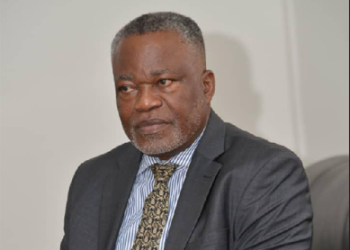Politicisation of Bawku conflict hinders peace efforts – Festus Aboagye
A security analyst, Colonel (Rtd) Festus Aboagye has warned that political divisions between the Mamprusis and the Kusasis on partisan political lines are what has been fueling tensions in Bawku.
He pointed out that while President John Dramani Mahama’s visit to the area on Tuesday was a positive move, the political landscape made direct government mediation difficult.
Commenting on President Mahama’s visit to the area on Tuesday as part of a mission in an interview, Colonel (Rtd) Aboagye explained that the long-running conflict between the Mamprusis and Kusasis has become deeply politicised.
He stressed the need for a neutral conflict resolution committee to move the peace process forward, considering the partisan political divide among the people, which is making it complicated to mediate the dispute.
Any intervention by a leader associated with one side risks escalating tensions further.
Although he recognised the significance of President Mahama’s visit to Bawku as a sign of his commitment to peace, Col. (Rtd) Aboagye warned that the President’s involvement in mediation could be seen as biased.
He suggested forming a neutral mediation committee, involving traditional leaders and other respected figures, similar to the process used to resolve the Dagbon chieftaincy crisis.
“The historical divisions and political allegiances make it challenging for the President to lead mediation directly,” Col. Aboagye said. “What’s needed is an independent process with key regional figures facilitating dialogue and ensuring lasting peace.”
Col. Aboagye also highlighted the military’s counterproductive role in the conflict. The use of force, he argued, had only escalated violence, leading to the loss of more than 30 lives in recent months. He called for a reassessment of the military’s mandate, urging a shift from peace enforcement to peacekeeping.
“The military has become part of the conflict by using force, which has worsened tensions,” he said. “The security forces should focus on peacekeeping, not on being combatants in a political struggle.”
Additionally, Col. Aboagye pointed to the broader regional implications of the Bawku conflict, particularly given its proximity to Burkina Faso, which is experiencing instability due to the Sahelian crisis.
While he dismissed claims that the conflict is being fueled by cross-border arms flows, he cautioned that external actors could potentially exploit the situation, which would make the conflict even more dangerous.
“We must remain vigilant about external influences that could further complicate an already volatile situation,” he said. “Any aggrieved party could turn to outside groups, such as terrorists, for support, which could escalate the violence.”
Col. Aboagye expressed the hope that President Mahama’s visit to Bawku will mark the start of a concerted effort to address the underlying causes of the conflict, including historical grievances, land disputes and competition for resources.
However, he stressed that achieving peace would require sustained and inclusive efforts, centred on dialogue and reconciliation.


